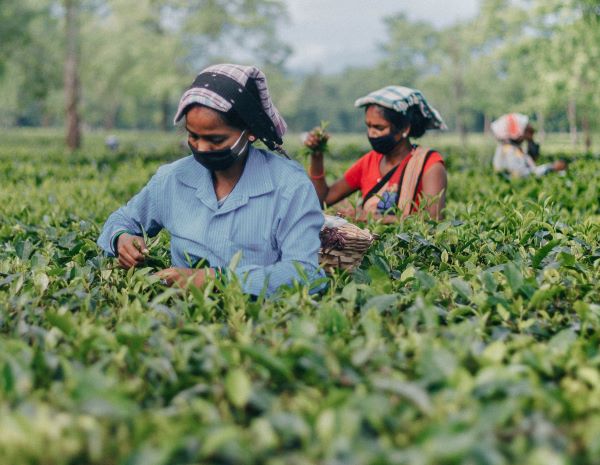The problem of global air quality is one of the most significant environmental issues. The amount of greenhouse gasses and air pollutants in the atmosphere increasingly damage the planet and human health.
In response, world governments are setting initiatives to reduce carbon emissions and other pollutants significantly to improve global air quality. Africa’s agricultural sector, in particular, is uniquely positioned to help reduce air quality pollution.
Air Pollution in Africa
Africa is experiencing considerable growth in urbanization. Studies show over 75% of the population will live in cities by 2050. While this current trend of urbanization will bring many positive changes to the country, it can also come with consequences. As cities expand, Africa’s air pollution problem will only get worse.
Air pollution has already taken a tremendous toll on the people of Africa. Since 2019, over one million fatalities across the four biggest cities have occurred due to health complications resulting from disastrously low air quality. High concentrations of volatile organic compounds are a genuine threat — particularly because of the country’s ordinarily high temperatures.
Because of this, it has become the prerogative of many world organizations to find ways to help Africa lower its air pollution. One unlikely area that can help is the agricultural industry.
Africa’s Agriculture Industry and Air Pollution
When people think of industries that harm the environment, agriculture most likely isn’t high on the list. However, farming on a large scale takes a lot of resources that are not easily replenishable.
The need for more farmland is the number one cause of deforestation. Animals bred on farms require thousands of pounds of food to raise them, needing even more land. In addition, the agricultural sector is the biggest consumer of freshwater in the world.
All these factors can affect global air quality. Fewer forests mean fewer large plants and trees can convert CO2 into oxygen. Livestock release even more CO2 through their bodily functions. Fossil fuels typically power farm equipment and vehicles, and produce air pollutants when active.
As Africa’s agricultural sector continues to grow, the problems presented by farms will become more pronounced. Africa also has unique air pollution issues in the form of large dust concentrations. The effects of these are the worst in the Sahara region.
The combination of agricultural expansion and nationwide droughts has caused the ground in the area to become so dry it turns to dust. This dust can carry on air and is fine enough for humans and animals to inhale, which can cause a wide range of health complications. Children and older adults are especially prone to potentially fatal respiratory infections.
Sustainable Agriculture in Africa
Because of this and many other factors, world organizations have been promoting sustainable agriculture practices and technology in Africa. These include replanting trees and plants in the process of making farmland. Doing this reduces the negative impact of the farm on the local ecosystem and the amount of harmful emissions produced.
Farms in Africa are also incorporating low-tilling and crop rotation systems. Tilling the soil as little as possible keeps the dirt arable and moist, while a crop rotation system can ensure the ground stays together by protecting it from sunlight and the dry climate. By doing this, farms can significantly reduce the dust created and sucked into the air.
In addition, African farms can quickly adopt sustainable farming technologies such as renewable energy generators. Solar and wind energy, in particular, are highly effective energy sources helping reduce the amount of fossil fuels people rely on. Organic pesticides and fertilizers also lower the amount of harmful chemicals farms emit into the air.
The Agricultural Industry Can Help
When it comes to the effects of air quality pollution, the agricultural industry’s impact should be considered. The dangers of overfarming include contributing to the dust problem and harmful emissions in Africa. By using sustainability practices, Africa’s farms can help clean up their continent’s air.

Jane is an agriculture and environmental journalist and the founder and editor-in-chief of Environment.co, where she covers sustainability and eco-friendly living.








